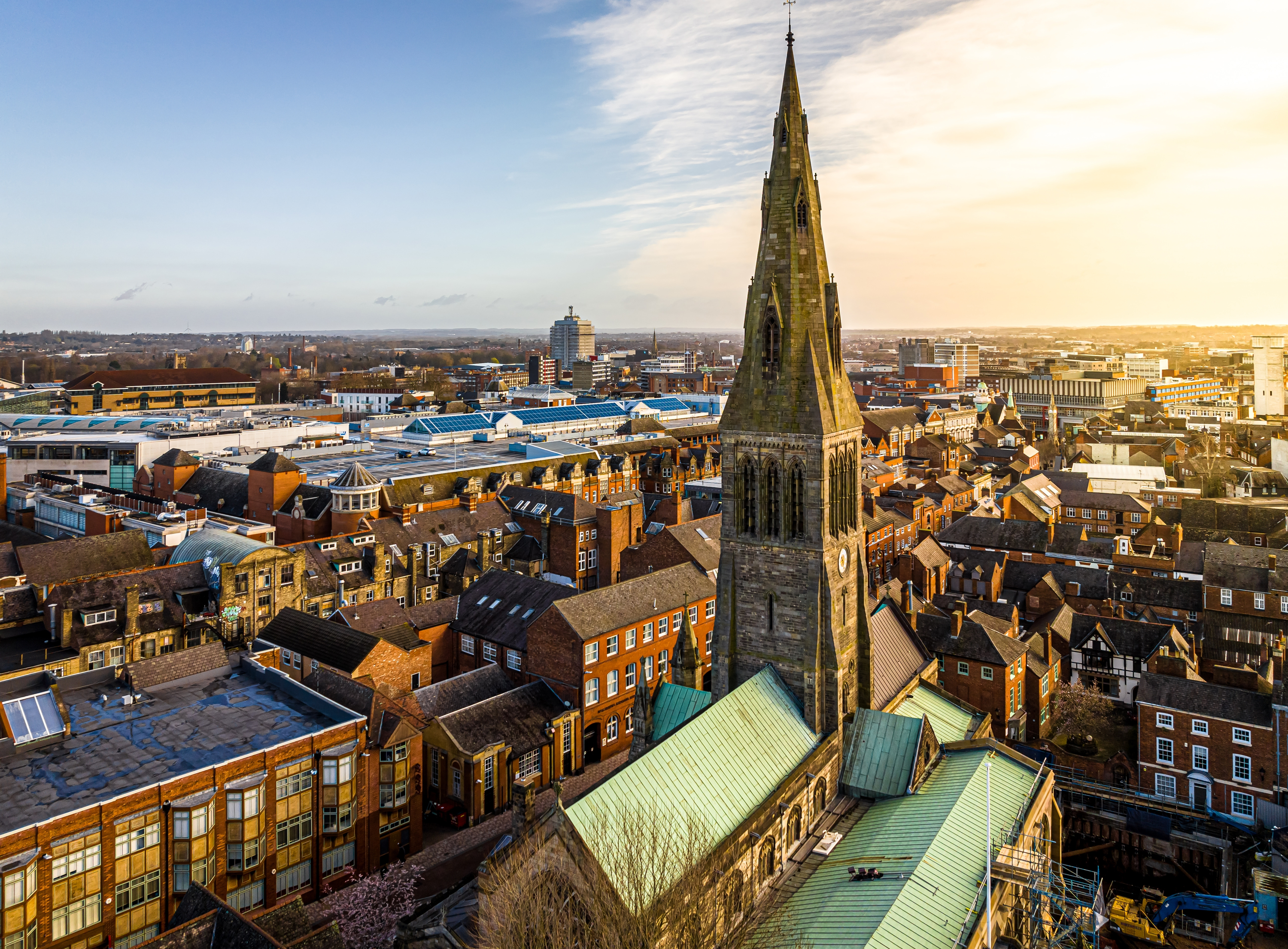
How much does university really cost?
It’s no secret that university can be expensive. Between loans, accommodation, and living costs, everything adds up. When you throw in course supplies, weekly shops, and nights out, it can feel a little overwhelming.
But how much does uni actually cost? Will you need to pay everything back, or only part of it? It all sounds like a lot of money at face value and, for many students, being able to afford uni is a common worry.
This blog will cover everything you need to know about uni costs in the UK – from tuition fees to groceries. We’ll explore the cheapest UK cities so you can plan your uni experience accordingly, as well as guide you through how much Unite Students’ accommodation costs.
This blog will cover:

Tuition fees
Tuition fees are a major uni cost that you need to pay back. But, don’t worry, you’re not expected to hand over thousands once you’ve finished your studies. Let’s take a closer look at how they work.
What are tuition fees?
Tuition fees are what you pay to learn at a university. Universities set these fees to cover key aspects of your course and other resources on campus, such as library access. A tuition fee loan can help you cover the fee upfront, but you’ll need to pay it back incrementally after you graduate and begin to earn over the repayment threshold.
What do they cover?
Tuition fees strictly cover things related to your education, so living expenses and accommodation aren’t included. You can expect tuition fees to cover your:
Seminars, lectures, and tutorials
Student union membership
Course admin (assignments, timetables, etc.)
Travel and accommodation costs for mandatory field trips
Campus library and computer room access
Access to course-related equipment and facilities
Student support services
How much are tuition fees?
The total cost of tuition fees depends on your home region, the region you’re studying in, and your chosen course. The maximum annual cost is set to rise from £9,250 to £9,535 for the 2025/26 academic year in England and Wales. Here’s a breakdown of prices for courses starting after 1 August 2025:
2024-2025 tuition fees:
Full time students: £9,250
Part time students: £6,935
Accelerated degrees: £11,100
2025-2026 tuition fees:
Full time students: £9,535
Part time students: £7, 145
Accelerated degrees: £11,440
Tuition fees also vary from region to region. Northern Ireland and Scotland set their own fees for native students versus other UK students. So the cost of university in England and Wales is higher than in Northern Ireland and Scotland.
Unsure how to pay for tuition fees, or what financial support is on offer at uni? Read our guide on how student loans and bursaries work for more information.

Accommodation costs
Student accommodation is another big consideration for uni costs in the UK. Accommodation prices will vary depending on location, provider, room type, associated bills, and more. According to the NatWest Student Living Index, the average rent for students in the UK is around £159 per week (or £689 monthly).
Student halls (like the ones Unite Students provide) often come with bills included. They’re also exclusive to students and located close to campus. Student halls are usually more expensive, but you pay for the extra convenience of having a variety of on-site facilities like study areas, community spaces and cinema rooms, for example. Most university hall rooms are also en-suite, so it’s likely you won’t need to share a bathroom too.
On the other hand, private flat shares or house shares don’t always include bills. That means you’ll need to pay for electricity, gas, water, and broadband separately. Private housing provided by landlords is also often further away from campus, will likely have shared bathroom facilities, and won’t offer the same on-site social spaces as university halls.
Whether you choose uni halls or private accommodation, make sure you budget accordingly so you’re never left out of pocket.
Unite Students accommodation costs
Our accommodation costs differ depending on the city you’re studying in, the accommodation itself, and the room type you choose. But bills are always included, so you never have to worry about paying multiple bills.
You’re spoilt for choice, no matter which city you end up in. We’ve listed some of the cheapest cities to live in, according to the index, alongside our lowest room prices to help you find your perfect home:
Aberdeen – from £86 a week
Sheffield – from £90 a week
Leicester – from £105 a week
Leeds– from £120 a week
Nottingham – from £145 a week
Birmingham – from £169 a week

Groceries and personal costs
Groceries and personal costs like travel and nights out can add up pretty quickly. According to the NatWest Index, students spend around £122 a month on grocery shopping. Plus, with household bills averaging £157 a week, you’ll want a budget in place.
It can be hard to manage your money while at uni. Financial literacy doesn’t come easy, but understanding how to manage your money is a great first step. Here are some budgeting tips to keep uni costs down for UK students:
Groceries. Students spend an average of £43 per month on takeaways. Save money on grub by cooking your own meals. Try planning ahead of time and cooking in batches after your weekly food shop.
Travel. Getting around can be costly. Consider buying a travel card, or seeing if your uni offers compensation. Around 51% of students used their student discount on travel cards, so it’s always worth looking into.
Subscriptions. From Netflix and Spotify to Disney+, consider cutting down on subscriptions you don’t use often. Alternatively, you can share subscriptions with your flatmates to reduce costs.
Nights out. Students spend around £43 a month on going out, and £53 on alcohol. Find student nights that offer cheaper venue entry and discounted drinks to save money. Alternatively, you can try other activities that don’t involve drinking.
Course supplies
Course materials and supplies are often overlooked uni costs in the UK, but they can add up. No matter what course you take, you’ll need to account for things like stationery, textbooks, and a laptop for studying at your accommodation.
The costs for course supplies depend on your subject, but you might want to set aside £20 to £40 a month for extras just in case. For example, if you’re studying science or nursing, you may need to pay for your own PPE.
It’s a good idea to check beforehand what your university and course provide before you buy anything. Some uni's offer loans for laptops, and second-hand textbooks may also be available.

Which city is cheapest for students in the UK?
After tuition fees, location is perhaps one of the biggest contributing factors to uni costs in the UK. Prices will vary depending on the city you’ve chosen to study in. This will also determine living costs like meals and bills (if they aren’t covered in your accommodation).
Wondering where your studies might take you? NatWest’s Student Living Index determined the most affordable cities by dividing students’ average monthly expenses by their average monthly income (excluding student loans).
Belfast
Belfast ranked the highest in affordability for students in the UK, with the lowest costs for takeaways (£32.80) and household bills. Rent is also quite affordable, and there are plenty of free things to do throughout the city.
Bath
Bath in South England followed closely behind in the list of affordable cities. Rent can be slightly higher, but you’ll find cheaper housing options further outside the city. Students here typically have the highest monthly average income of £2,981.
Derby
Derby is considered another affordable city for students. Students here spend the most hours each month in part-time work, helping to offset rent and living costs. Nights out won’t break the bank either, with Derby students spending £32 on average each night.
Glasgow
Glasgow ranked fourth in affordability for students. The city is a student haven, with lower average rent costs of £703 per month and a range of student deals and discounts. Some universities even offer free bus travel.
Ormskirk
Ormskirk in West Lancashire rounded up the top five affordable cities. Students here can expect an average rent of just £541 a month – a vast difference from London’s average monthly rent of £1,032. Travel, nights out, and activities won’t leave you out of pocket either.
FAQs
What is the average budget for university in the UK?
According to the NatWest Student Living Index, the average cost of university in the UK is around £1,104. Students spend an average of £67 on academic studies, £70 on going out, £92 on their hobbies, and £61 on home entertainment on a monthly basis. The average rent in the UK is around £689 a month, while household bills are around £157.
How much does a UK university degree cost?
The maximum tuition fee for a full-time undergraduate degree in the UK is £9,535 per year, up from £9,250. For part-time students, it’s £7,145, while accelerated degrees cost £11,440 a year. Student loans are available to help with living costs, which include tuition fee and maintenance loans.
What is the maximum amount of student loans you can get?
The amount of student loans you’re eligible for depends on where you live and your parents’ income level. Students living with their parents can get up to £8,877, while those studying in London and not living with parents can expect up to £13,762. If you’re in your final year of uni, these loans drop to £8,353 and £12,750 respectively.
